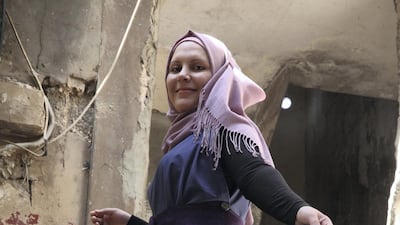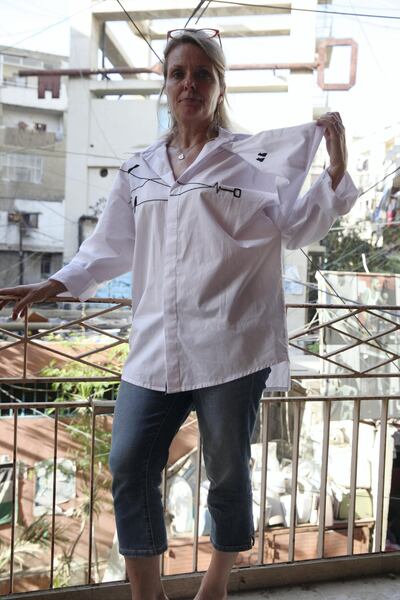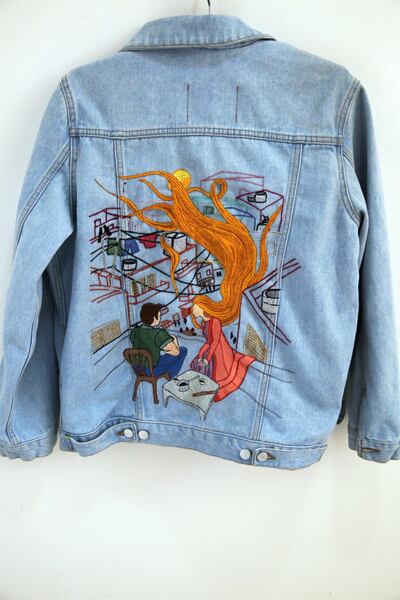In a second-floor room in a small apartment in Shatila, a sprawling Palestinian refugee camp in Beirut, a dozen or so women sit on a long sofa that hugs the walls, chatting and laughing. Their hands are busy as they talk, moving swiftly on their laps as they thread colourful cotton through cloth, embroidering complex patterns with practised speed. Four young children meander about the room, playing together as their mothers neatly stitch stories on to purses, bags and clothes.
This is Shatila Studio, which provides regular income to more than 100 Syrian and Palestinian refugee women. Originally a non-profit women’s workshop run by Lebanese NGO Basmeh & Zeitooneh, Shatila Studio relaunched this year as an independent social enterprise after funding for the project was cut. Eight months after reinventing itself, the company is scaling up production to meet a backlog of orders, demonstrating a viable model for a sustainable refugee-run business.
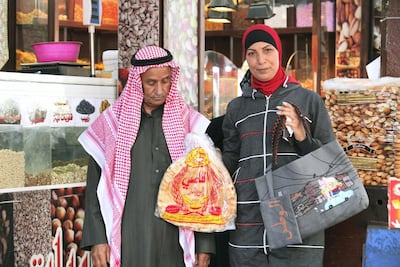
Shatila Studio is run by three full-time salaried staff, all Palestinian refugees from Syria who now live on the Beirut site. Niveen Soukari, who arrived in Lebanon in 2013, learnt traditional Palestinian embroidery from her mother in the Yarmouk refugee camp in Damascus, where she grew up. She began working as an embroidery artisan with the women’s workshop soon after arriving, after struggling to find employment as a nurse.
“Bit by bit I worked my way up from the bottom to the top,” she says, adding that she took online accounting courses to bolster her skills. In the meantime, she was made a supervisor and then put in charge of the storeroom, before becoming a production line manager. Today, she is Shatila Studio’s co-director and accountant, as well as managing quality control and production. She has also created her own collection of designs, each of which uses traditional Palestinian motifs to tell a story.
One beautiful pattern for a large rectangular bag, dominated by red and green shades on a black background, features a central motif of squares, each divided into four by a cross. This pattern symbolises exile, she explains, representing the windows of a prison. Surrounding it, she has placed stalks of wheat, Palestinian trees and stars, all symbolising hope and the possibility of a brighter, better future.
A second set of products, called the Shatila collection, includes dolls, bags and clothes, and features a more contemporary aesthetic. Lebanese-Armenian designer Missak Hajiavedikian’s touching illustrations are based on the stories of women living in the camp, and adorn everything from passport pouches and bucket bags to cotton dresses and jean jackets.
Co-director Meike Ziervogel, a novelist and founder of London publishing house Peirene Press, is the only team member who is not from Shatila. She joined the fledgling company in January to help establish it as a social enterprise and ensure that all its operating costs are covered by profits from sales, rather than donated funds. She was originally due to stay for nine months, but when I speak to her on the day she was meant to depart, she has no intention of leaving.
“I’ve now decided to stay for at least three years because I want to see what’s going to happen,” she says. “I think we are on to a winner here. What makes Shatila Studio unique is that it is an enterprise run by refugee women, for refugee women, from right inside the camp.
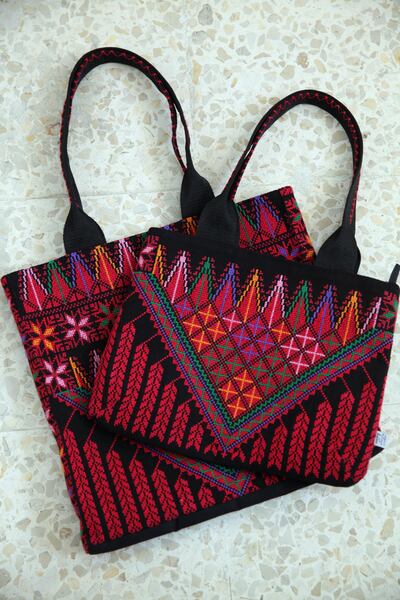
“We want to be a leading example of how a business can develop within a refugee community, because this is really important and investors generally are starting to wake up to this. At the moment, there are 70 million refugees worldwide and that group is growing. I have absolute faith that we will show the world how, out of this mess and pain and very difficult situation, you can grow an international business.”
A successful crowdfunding campaign that rewarded donations with Shatila Studio products raised almost $14,000 (Dh51,415) for the start-up this summer, generating a large number of orders and funding the purchase of two new machines for the tailors. Orders through the website are also providing steady work, in addition to collaborations with international designers and overseas businesses. Working with large companies outside Lebanon is key to Shatila’s success, Ziervogel says.
In the office she shares with Soukari, hand-drawn charts are stuck on the walls, tracking monthly revenue, monthly profits and accumulative profit. "When I came on board, no one here had run a business," says Ziervogel. "No one had heard of a profit margin, fixed costs, variable costs. So now we do it with total transparency."
Shatila Studio takes the same open approach when it comes to customers, explaining on its website the breakdown of the cost of each item it sells and explaining where the money goes. All profits are fed back into the company to help it grow. This is meant to help people understand why an embroidered denim jacket costs more than $200 and a tote bag is almost $100.
"This is handwork," says Ziervogel. "When I tell people how much a piece costs, they say: 'Oh my god, this is so expensive.' And they are right. Why are they right? Because most of this stuff is put out by NGO-funded women's workshops and therefore – and this was the same here – often these things are sold and don't even cover the women's income … and that messes up the whole market."
Many of the women who work at Shatila Studio are the sole breadwinners in their families, she explains. They pay between $300 and $500 a month to rent a tiny apartment, as well as paying about $100 in monthly bills. “They live here in Shatila because they have to, not because it’s free,” she says. “We want to and have to pay our artisans adequately. They can’t work for free.”
Currently, some women choose to work very few hours, earning as little as $50 a month, while others earn up to $400. Ziervogel says that by the middle of next year, they aim to ensure that half of their artisans can cover their monthly rent.
Shifting from a charity project to a business has changed everything about the way they operate, she says, from the volume of orders and the way they process them, to the artisans' attitudes to their work and themselves. "The most obvious thing that's changed is that we no longer have any money coming in, so we have to generate everything," she says. "That, of course, means that the quality changed massively. Frankly, when I came on board, the quality was really quite bad, most of the time."
Despite their talent, she explains, the embroidery artisans and tailors had little incentive to pour all their energy into producing high-quality work. "They were paid for who they are, rather than for their work," she says. "When there is a disconnect for why you are being paid and the work you're doing, I think that creates no empowerment, no continuity. This is really what has now changed.
“Suddenly everyone is incredibly focused on, for example, quality, because everyone is aware that we better sell. We all want to receive money because we do a good job, and suddenly there was a reason why people had to do a good job – and that’s empowerment.”
